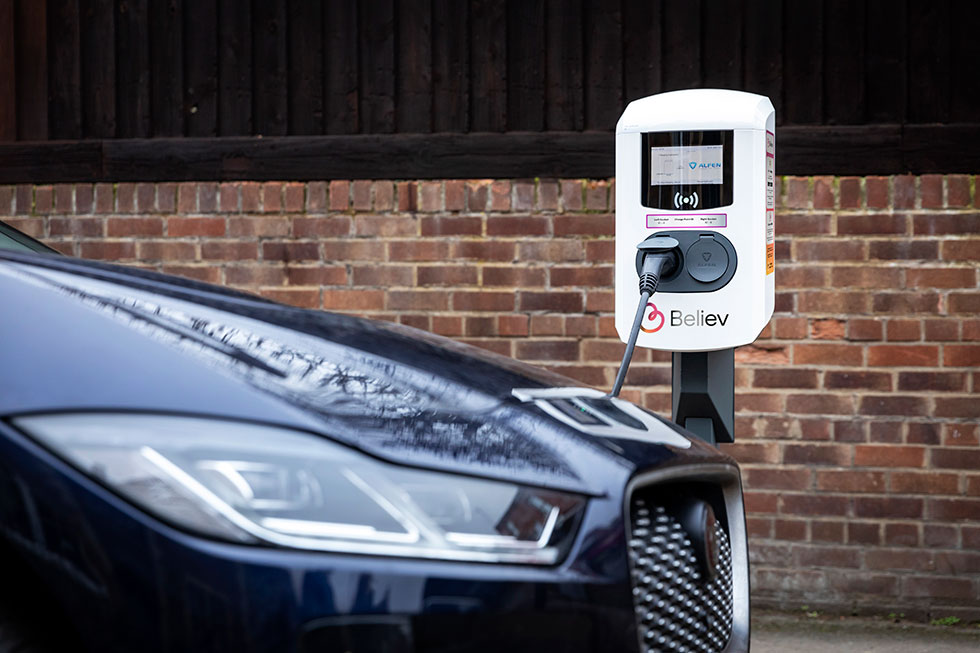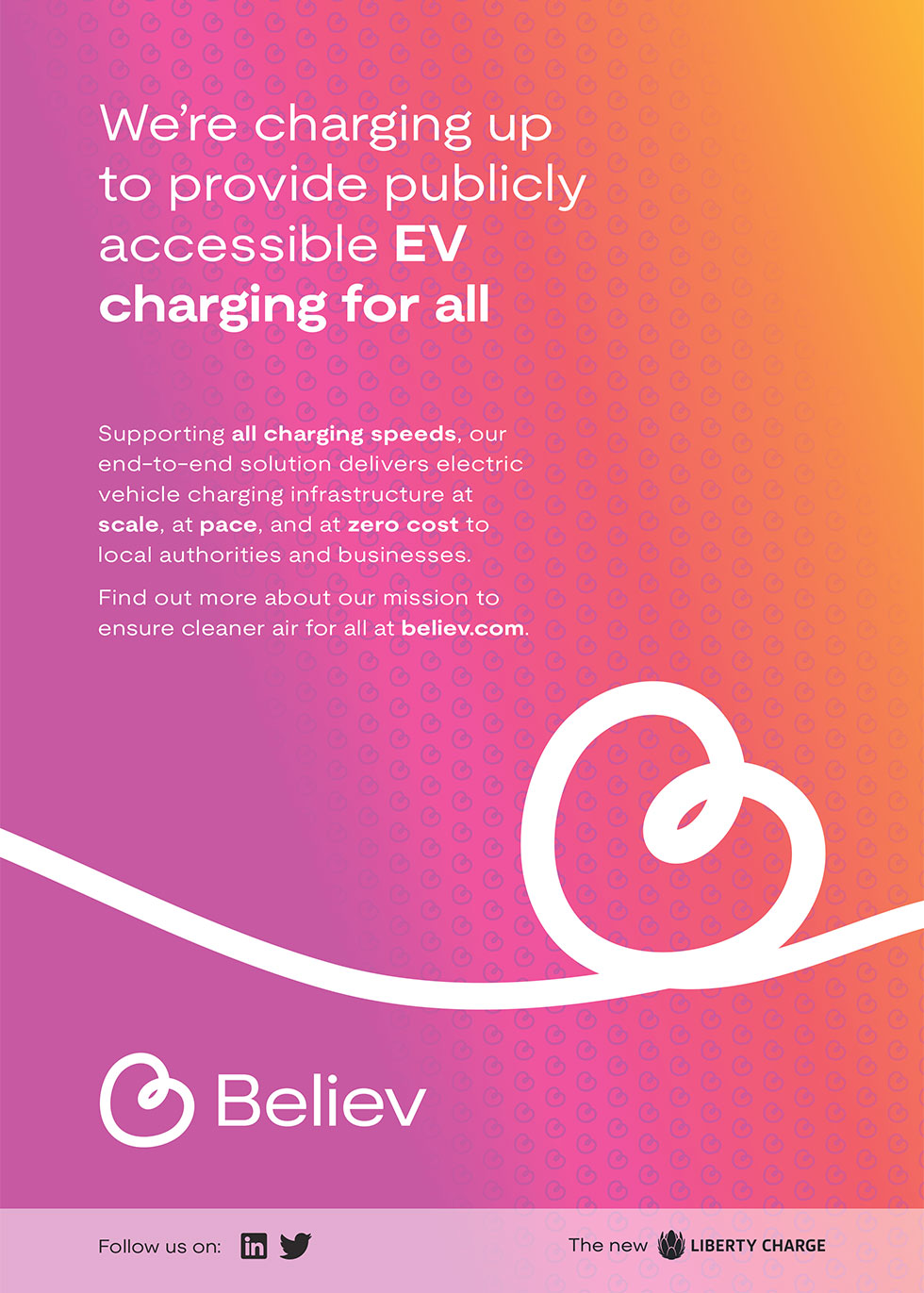
Matt Croucher, EV Services Director at Believ talks to Public Sector Focus about the significance of ChargeUK and what the landscape of charging infrastructure will look like in the future.
At some point in the near future, charge points will be as familiar, if not more so, than a petrol pump. While there are still some who see them as an oddity, it won’t be long before others are asking why there isn’t one on their street. This shift in consumer conscience is giving rise to a new industry, and to a new group of charge point operators (CPOs). What ChargeUK brings is a collective voice for those CPOs, so that when Government is looking at policy, the views of the whole industry are considered. Only by understanding the different challenges that CPOs face – whether they are delivering on-street or residential charging, or charging hubs – can we effectively seek to overcome the barriers to wider scale adoption of EVs. That’s why it is important for Believ to be part of this group, as a founding member, so that our experience is taken into account.
What are ChargeUK’s priorities and how do they align with Believ?
Many of the priorities for ChargeUK and Believ are aligned. We both want to ensure a positive consumer experience, for example, and ensure legislation/regulation is fit for the future. One of the biggest challenges is the issue of VAT. It is a key issue that ChargeUK is already working on, and one which we actively support. How can it be right for someone who cannot charge at home to have to pay 20% VAT when charging on-street, when the VAT rate for domestic charging is only 5%? EV charging needs to be accessible to all, and all at the same rate of tax. It can’t just be a luxury for a privileged few; it must be seen as a necessary component in the mechanism that will remove our dependence on fossil fuels.
Another priority is breaking down the barriers to installation. There are both macro and micro challenges that we can collectively and individually change as CPOs. The bigger challenges, like simplifying the planning processes and introducing a standardised method of implementing charge points, are areas we must work on together with UK Government. Individually, Believ is already implementing ways of making installation as pain-free as possible for local authorities. It’s why we work directly with local authorities from planning through to installation and maintenance, and support them through the legal and strategic elements of the roll out.
What challenges do local authorities face?
One of the most pressing issues for local authorities is the constraints around power availability, and the time and cost requirements of getting power to the charge point. This can often hinder local authorities from getting the right charge point in the right place. Planning permissions and permitted development rights can also dramatically slow down roll out. That’s why we’re supporting ChargeUK in creating a best practice guide for local authorities to advise how best to overcome these issues.
Resourcing has also proven to be an issue. It’s crucial that a member of a local authority has comprehensive knowledge of procuring EV charge points, to ensure smooth planning and delivery and address the needs of local drivers. Without that knowledge, residents may miss out on the infrastructure they desperately need.
To combat this, we’ve created a mapping tool in association with Loughborough University to identify where charge points need to be installed so consumers receive the best experience possible.
Government funding also remains a contentious issue. Well-intended large-scale grants like LEVI funding are having an adverse impact on the timing of the wide-scale roll out we desperately need. The funding has been delayed multiple times and is proving to be a difficult process for local authorities to access. It’s also slowed the rate at which local authorities are going to tender when they could actually get charge points in the ground much more quickly if they pursued alternative funding routes.
The future
The cornerstone of our future is the rapid scaling up of charge point delivery. Currently, the UK has around 40,000 sockets; in the next seven years we need to roll out many times that number. Strategic roll out has to be our focus.
Unlike the petrol station model, the EV infrastructure sector is moving away from having a small number of players that have a monopoly on the market to a wealth of CPOs who can serve all drivers’ needs, and share responsibility to ensure we reach our sustainability ambitions.
The initial uptake of EVs was by those who had capacity to charge at home. Now, more and more people without driveways are wanting to switch to electric, but don’t have the infrastructure in place. Indeed, the majority of charge points that have been installed today are in car parks and/or in service stations on our motorways. We need on-street charging for those in flats and communal living or for those without a driveway if we want the take up to be truly sustainable. Our ambition at Believ is to ensure that everyone has the capability to charge both near their home and at their destinations, which will ensure cleaner air for all.
The future of EV charging infrastructure is fertile ground for new technologies to emerge. I believe we’ll see technologies that mainly focus on making the consumer experience seamless. Plug and charge – meaning the vehicle communicates directly with charge points – is already a reality to some degree; payment details are already registered with the charge point, mitigating the use of an app or separate interface to pay for your charge.
We have challenging but exciting times ahead, but to truly secure a sustainable future that leaves no one behind, we need to act now and on a large scale throughout the UK.















